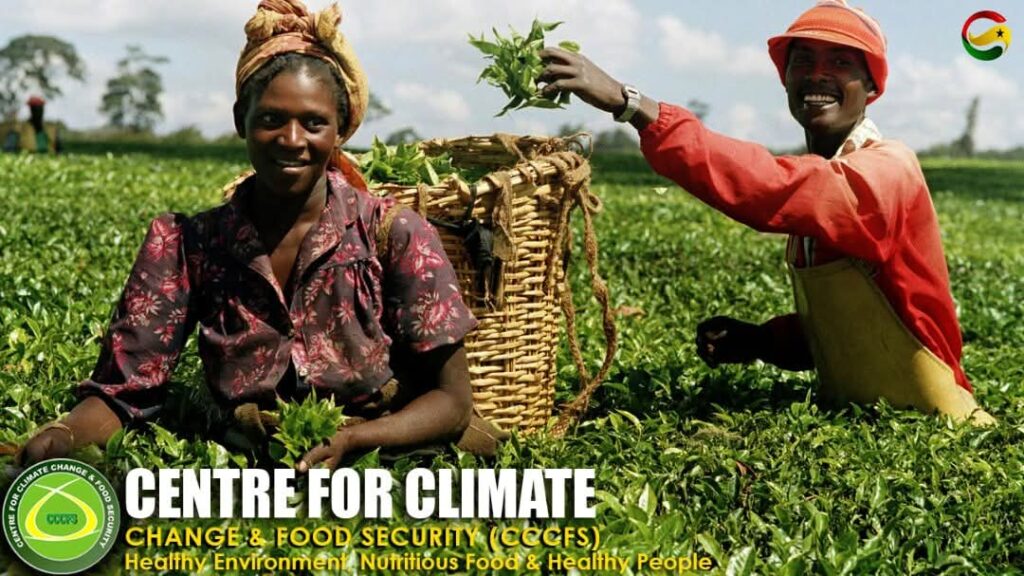By Aminu Adamu
When the Centre for Climate Change and Food Security (CCCFS) was founded in October 2015, it had no offices, no donor checks, and no foreign grants. What it did have was a conviction: that climate change, environmental degradation, and illegal mining posed a direct threat to Ghana’s food systems, public health, and future generations.
A decade later, the organization has not only survived but expanded across West Africa, proving that transformative impact in climate and food security does not always depend on donor budgets.
“We may not have money, but we have knowledge, truth, and commitment,” says Executive Director Engr Mahmud Mohammed-Nurudeen.
Advocacy Rooted in Evidence
CCCFS started with simple but bold steps: educating communities on climate change, disaster preparedness, sanitation, and sustainable farming. Early on, it became the first Ghanaian NGO to openly demand a state of emergency over illegal mining, known locally as galamsey.
Their research revealed alarming mercury contamination in crops grown near polluted water sources findings that would later spark nationwide debate.
“Those were silent killers in our food system,” recalls Issifu Sulemana, the group’s Director of Research. “We could not ignore them.”
This evidence-based advocacy, years ahead of mainstream media attention, set CCCFS apart as a watchdog and voice for vulnerable communities.
Grassroots Training and Practical Solutions
Beyond advocacy, CCCFS invests in local solutions:
- Training religious leaders to interpret weather forecasts so they can advise communities on planting seasons and disaster preparedness.
- Teaching farmers safe agrochemical disposal to prevent poisoning and land degradation.
- Running anti-food-waste campaigns in northern Ghana to show how waste fuels greenhouse gases.
- Planting trees in cocoa regions to restore soils and safeguard livelihoods.
- Educating market women in Kumasi on the dangers of indiscriminate tree cutting and the benefits of urban greenery.
Since 2017, the NGO has trained thousands of students across institutions like KNUST, UDS, and Christian Service University, inspiring the next generation to become environmental stewards.
Setbacks, Honesty, and a Pivot
In 2025, CCCFS applied for its first international grant. They passed every stage but lost at the final hurdle because they admitted to never having received foreign funding.
“That honesty cost us,” says Mohammed-Nurudeen. “We could have claimed to work with bigger organisations, but truth is part of our DNA. If it means suffering, so be it.”
Instead of retreating, CCCFS pivoted. They partnered with Nigeria’s The North Journals to launch a six-week training for West African journalists on biodiversity and ecosystem reporting.
Training Journalists Across West Africa
The programme, “Biodiversity Matters: How Africa’s Stories Can Shape a Sustainable Future,” ran from July 11 to August 15, 2025. Over 100 journalists applied, with only 30 selected on merit.
Sessions covered biodiversity basics, data-driven reporting, ethics, and investigative tools, with trainers from India’s Down To Earth, Nigeria, and Ghana.
For Nigerian reporter Zainab Adam, the course was eye-opening:
“It showed me how biodiversity links to food, health, and climate. This is exactly the kind of knowledge Africa needs.”
Sierra Leonean student journalist Sheku Desmond described it as “highly educational” while Beninese journalist Sounouvo Bijou praised the networking opportunities but urged for multilingual support in future editions.
The training ended with the creation of West Africa Journalists for Environment, Science, Health & Agriculture (WAJESHA), a regional network launched on August 15 to connect reporters across borders.
Integrity Over Comfort
Despite rejections and challenges, CCCFS continues to walk into schools, farms, mosques, and churches across Ghana, spreading climate knowledge without a single donor’s dollar.
“Our mission is bigger than money,” says Mohammed-Nurudeen. “We owe it to the farmers, the students, the women, the future. Funding or no funding, the work must go on.”
The Solution at Work: CCCFS demonstrates that grassroots knowledge-sharing, evidence-based advocacy, and regional collaboration can sustain climate action without donor funding. By prioritizing integrity and innovation, they’ve created a model of resilience for NGOs across Africa.


